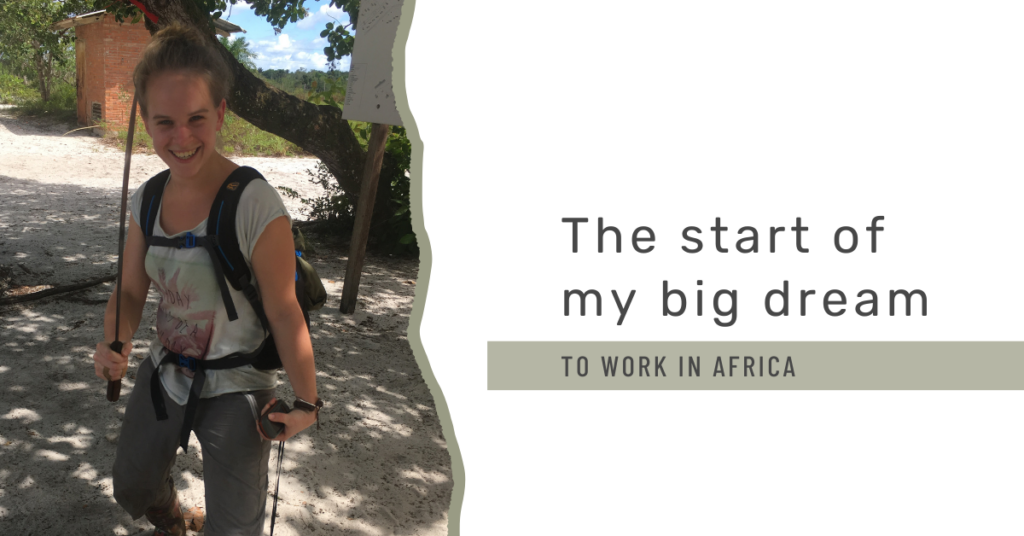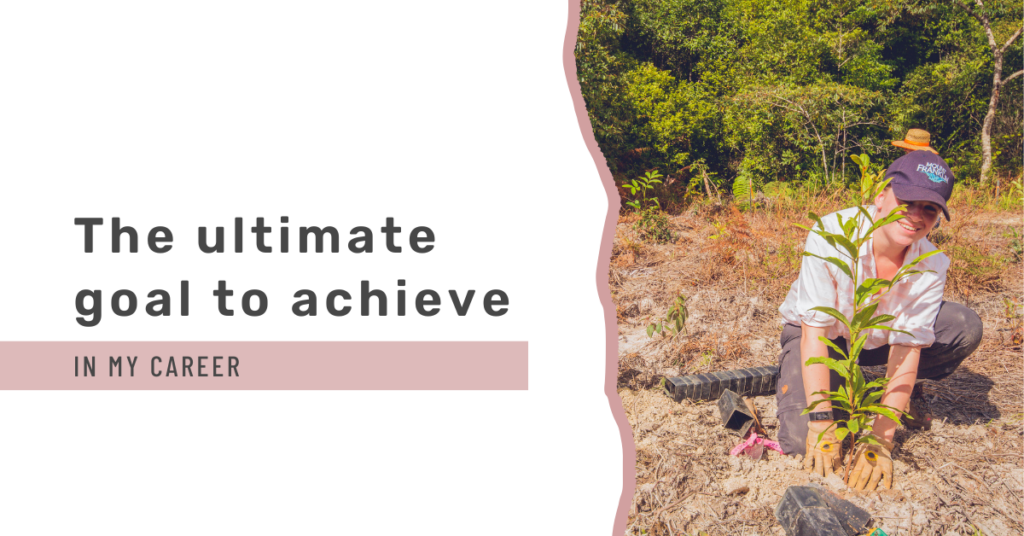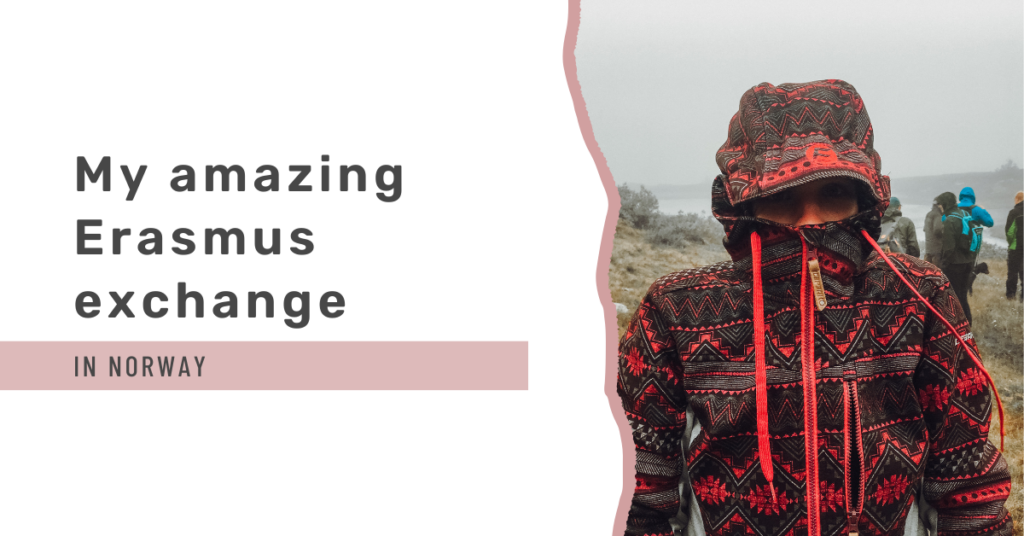After my captivating journey to Madagascar, where I fell deeply in love with its tropical nature and its fascinating inhabitants, I made a resolute decision to pursue a career in nature conservation. Through my search, I stumbled upon the Forest and Nature Conservation program at a small green University of Applied Sciences, and an instant connection was established. What made this program particularly enticing was its specialization in Tropical Forestry, which aligned perfectly with my aspirations. Thus, on the 1st of September 2015, I officially commenced my bachelor’s degree in tropical forestry.
The bachelor’s degree in tropical forestry program spanned four years, with the initial year serving as a propaedeutic year primarily focused on Dutch nature and landscapes—certainly informative, but not quite as captivating as the tropical realm I yearned to explore. My eagerness to delve deeper into the realms of nature, wildlife, and ecosystems persisted. After 1.5 years of foundational learning, I finally reached the juncture where I could transition into the world of tropical forests.
My anticipation for this shift was noticeable. While the initial year had primarily centred on Dutch nature and landscapes, the second year, although still partly focused on the Netherlands, marked the turning point. After accumulating a solid background in various aspects of nature conservation, the time had come to mould my knowledge and skills to befit the tropical environments I had grown so passionate about.




The specialisation of tropical forestry
Throughout my specialization in tropical forestry, the breadth of knowledge we acquired was nothing short of astounding. Our curriculum encompassed an array of subjects, including ecology, research methodology, local livelihoods, wildlife management, and forestry. Amidst the engaging theoretical lectures, we embarked on enjoyable excursions that brought our learning to life. Visiting a local zoo and expansive greenhouses, where we honed our skills in identifying tropical plants, provided valuable hands-on experiences. Among these excursions, my absolute favourite was our trip to the zoo. On an ordinary day, with the zoo bustling with visitors coming to see the animals, there we were, trailing behind our teacher, ardently examining the lush tropical exhibition. It must have been quite a spectacle for the other zoo-goers.
One memorable aspect of our studies was a game we played during one of our early lectures. We assumed the roles of households in rural Africa, which initially led to playful banter and jokes about trading children for labour or livestock for sustenance. However, the amusement soon faded as we began to comprehend that these scenarios mirrored the harsh realities faced by countless people in the region. The study of local livelihoods emerged as a pivotal component of our education. We came to understand that effective conservation efforts in Africa necessitate a deep consideration of the local communities’ well-being. We couldn’t simply proclaim, “Stop cutting down the forests,” when their very survival hinged on these activities. This recognition underscored the critical importance of striking a delicate balance between conservation and the livelihoods of the people who call these tropical forests home.
Course
Another pivotal area of the bachelor’s degree in tropical forestry was agroforestry, a concept that can be simplified as the integration of food crops with trees. A significant project we undertook involved establishing a plantation in Ghana, employing agroforestry principles. This approach offers a multitude of benefits, including increased income, enhanced food security, and improved soil quality. While the project presented its fair share of challenges, it proved to be an invaluable experience that enriched our understanding of tropical forestry. It’s worth noting that while our budget calculations might have suggested the potential for financial prosperity from owning a forestry plantation in Ghana, the reality was far more complex.
Our coursework also delved into the intricate ecology of tropical forests, characterized by astonishing biodiversity. Within these ecosystems, a delicate web of interdependence exists among plants and animals, preventing their collapse. We explored the intricate processes driving this high level of biodiversity and sought to answer questions about why it flourishes. One of the most captivating topics was the symbiotic relationships between animals and plants, where some interactions were mutually beneficial, while others involved one party benefiting at the expense of the other. These fascinating dynamics fell under the umbrella of symbiosis, a subject I later expanded upon in a dedicated blog post.
In addition to our specialized tropical forestry courses, we engaged in more conventional subjects typical of any nature conservation program. Lessons in Geographic Information Systems (GIS), research methodologies, and data analysis were all part of our curriculum. The diverse knowledge accumulated from these various courses converged during our field trips, where we had the opportunity to put theory into practice and witness the complexities of conservation firsthand.




Field trips during the bachelor’s degree in tropical forestry
Portugal
Our inaugural field trip led us to the captivating Faya Brava reserve in Portugal, where a diverse array of activities awaited us. The primary focus of our time there centred on conducting our independent research projects. In my group’s case, we delved into the intricacies of frog biodiversity within the reserve’s ponds, exploring its correlation with water quality and pond size. Despite the limitations posed by the brief duration of the trip and the prevalence of dried-up ponds, we regrettably did not unearth any statistically significant findings. Nevertheless, the experience of designing and executing our research was immensely enriching and enjoyable.
In addition to our individual research endeavours, we engaged in collaborative projects, including research on stone oaks and enlightening visits to local museums. On our precious free days, we relished the opportunity to take a dip in the river, offering respite from the long, sweltering days spent in the field. While Portugal was undoubtedly a delightful field trip, it would soon be eclipsed by our subsequent adventure in Suriname.
Suriname
Our nearly three-week-long stay in this enchanting country was a truly extraordinary experience. Throughout our journey, we engaged in a myriad of activities, all centred around forestry practices and the pivotal management plan that awaited completion upon our return. This comprehensive plan was designed to guide local communities in the sustainable management of their community-owned forests, striking a delicate balance between maximizing productivity and ensuring the forest’s health for future generations. To craft this plan, we embarked on an extensive data-gathering mission, encompassing both the current state of the forest and the livelihoods of the local population.
Our journey began with a preparatory phase in a former plantation, honing our data collection skills in preparation for the work ahead in the Pokigron region. Here, nestled within the heart of the tropical forest, we meticulously collected data on tree species while cutting our path through the dense vegetation. The forest was so thick that turning around would often leave us disoriented, unable to discern the path we had just carved. Beyond our forest data collection, we also conducted insightful interviews with local residents. These conversations afforded us a deeper understanding of their intentions for forest usage and the specific items they harvested from these invaluable natural resources. Everything we learned in the bachelor’s degree in tropical forestry so far came together in this project.




After hard work comes …
As a well-deserved reward for our relentless efforts in the hot and humid rainforest, enduring the relentless onslaught of mosquitoes and pesky ants, we were granted a unique opportunity. We ventured further into the heart of the forest, journeying to a secluded eco-resort nestled deep within the wilderness along the riverbanks. This remote haven was beyond the reach of roads, necessitating a different mode of transportation: boats, or perhaps more accurately, long canoes packed to their brim. Navigating the river proved to be an adventure in itself, as the waterway was peppered with challenging rapids. When we encountered these turbulent stretches, everyone, along with their luggage, had to disembark from the canoe, allowing it to navigate the rapids unburdened. Only then could we all re-board, ready to continue our exhilarating journey deeper into the forest.
Due to the numerous rapids and unexpected delays, our progress was slower than anticipated, and nightfall descended upon us before we could reach the eco-resort. This meant that our journey continued over the river in complete darkness, with treacherous rocks lurking beneath the surface. Our guides skillfully navigated the canoe, using their torches sparingly and only for a fleeting few seconds before plunging us back into the pitch-black abyss. Those nerve-wracking moments stretched on for what felt like an eternity, and my sense of relief was real once we finally reached the safety of the shore.
The adventures continue…
With the conclusion of the field trip and the successful completion of our project in Suriname, I had officially completed the theoretical portion of my study. However, there remained an additional 1.5 years before I would earn my bachelor’s degree in tropical forestry. During this time, I embarked on a series of academic pursuits, including my minor, practical placement, and thesis, each spanning a semester, or approximately five months. While each of these experiences was unique and significant, delving into the details of each one here would significantly lengthen this blog post. Therefore, I’ve dedicated separate blog posts to share the enriching experiences I had during my Erasmus exchange in Norway, my internship in Australia, and the profound journey of completing my thesis in South Africa. Stay tuned for those exciting stories!
Want to support my work?
I spend a lot of time keeping this website filled with educational content and keeping updates about what I do to achieve my dream of working and living in Africa. Do you want to support me? You can buy me a coffee or purchase one of my digital prints. All proceeds will go towards my elephant research and the time spent on this website.







